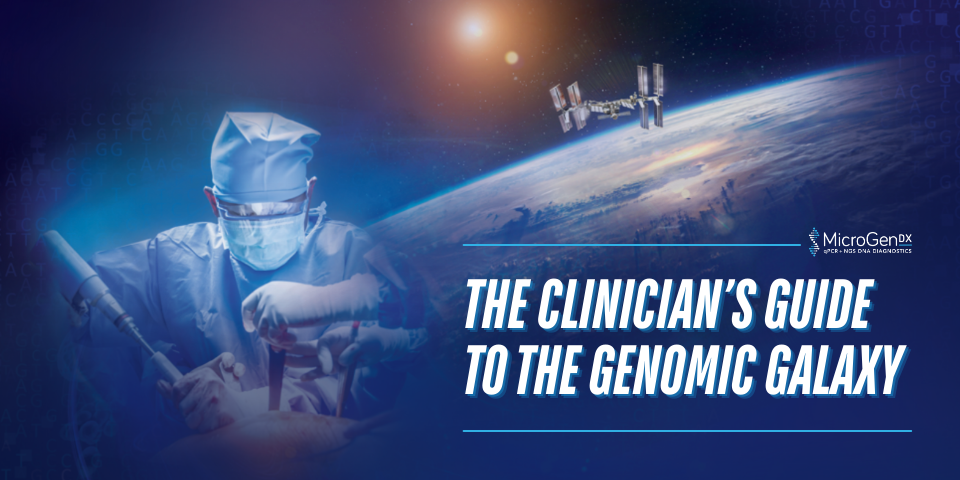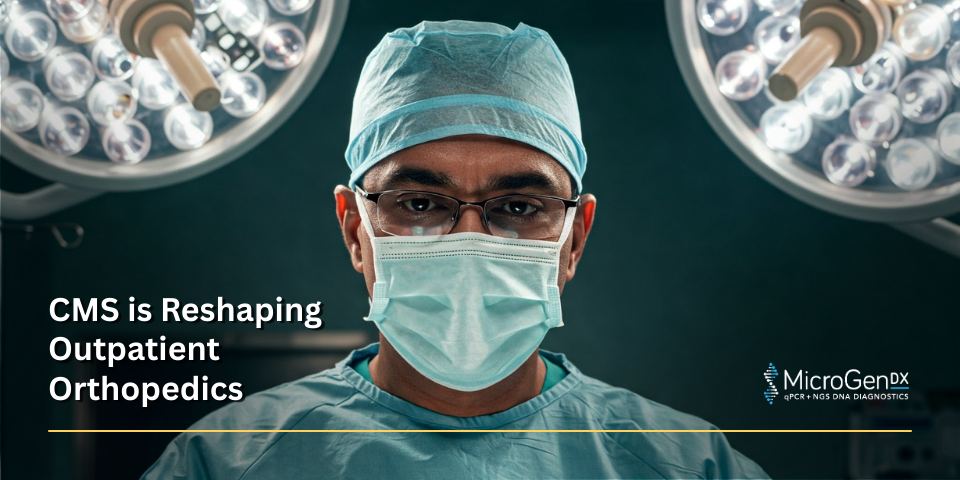In several recent award-winning studies, researchers relied on MicroGenDX’s next-generation sequencing DNA diagnostic testing (NGS testing) to precisely test infections for the presence of key compounds. Without NGS testing, there is a potential that these researchers would not have been able to adequately detect these various substances, which would hinder their ability to conduct their respective studies.
What Is Next-Generation Sequencing DNA Diagnostics?
MicroGenDX’s next-generation sequencing testing is a type of molecular diagnostics that “extracts DNA from a sample to look for the presence of more than 50,000 species of bacteria and fungi in its database.”1 This process ensures that researchers can effectively represent various viruses and parasites during their studies.
Furthermore, NGS testing can allow clinicians to identify specific bacteria that may be impacting patients when culture cannot. As a result, clinicians can then develop custom treatment protocols to provide a higher quality of patient care.
In addition to the clinical applications, MicroGenDX’s NGS testing has become a valuable tool for researchers, including several high-profile and award-winning studies described herein.
Study 1 – Eastern Orthopedic Association 2021 Parvizi Musculoskeletal Infection Award
In the fall of 2021, Dr. Karan Goswami received the prestigious Eastern Orthopedic Association’s Parvizi Musculoskeletal Infection Award.2 He documented the findings of his study in a research paper, which was titled “Fracture-associated Microbiome and Persistent Nonunion: Next-Generation Sequencing Reveals.”
According to the award’s namesake, Dr. Javad Parvizi, “Infected nonunion is a major problem.”2 Nonunion occurs when the adjoining bone fragments at a fracture site fail to reunite while simultaneously experiencing a persistent infection.3 Infection within nonunion sites presents substantial challenges to orthopedic care providers. Patients who suffer from nonunion are at an increased risk of diminished function in the affected limb and may even require amputation.
During his research, Dr. Goswami utilized MicroGenDX’s NGS testing to identify which pathogens were present within the microbiome. He used this data to estimate the approximate microbial contribution to fracture nonunion. Goswami found that NGS detected 77% more cases of nonunion when compared to traditional cultures.
Goswami concluded that “fracture-associated microbiome detected using next-generation sequencing appears to be a significant risk factor for persistent nonunion.”2
Study 2 – SMSNA 2019 Best Abstract Clinical Award
The second award-winning study that incorporated MicroGenDX’s next-generation sequencing testing is titled “Microbiome of the Primary Penile Implant: A Comparison Pilot Study With Worrisome Results at the Pump Space.”
This study received an SMSNA award in 2019 for Best Abstract Clinical. The primary author of this abstract is Dr. Gerard Henry, with supporting authorship from Doctors K. Jani and A. Kramer.4 The Sexual Medicine Society of North America was established in 1994 and focuses on the advancement of sexual medicine.
During the study, the researchers analyzed men undergoing primary penile inflatable prosthesis placement. They collected tissue swabs from various locations, including the pump space in the scrotum.
After tissue swabs were collected, researchers performed NGS testing. Data were available on a total of six out of 10 patients at the time of analysis.5 Of those six patients, two had positive test results. One patient had evidence of staphylococcus aureus, whereas another had a fungal species present within the pump space.
The study showed that NGS could potentially help providers detect the presence of bacteria, which will allow them to guard against device infection.
Study 3 – Eastern Orthopedic Association 2019 Parvizi Musculoskeletal Infection Award
In 2019, researchers used MicroGenDX’s NGS technology in another study that received the Eastern Orthopedic Association’s Parvizi Musculoskeletal Infection Award. The Rothman Institute conducted this study, titled “Next Generation Sequencing for the Diagnosis of Periprosthetic Knee Infection: A Multicenter Investigation.”6
When using traditional cultures, physicians have difficulty detecting the infecting organism that causes periprosthetic joint infection (PJI). During this study, researchers utilized NGS testing to examine if it was a more effective method of identifying the causative bacteria in patients suffering PJI within the knee.
The study included 13 different academic institutions and 102 patients who underwent revision total knee arthroplasties. Swabs, deep tissue, and synovial fluid were collected during the procedure. These samples were sent to the MicroGenDX laboratory for NGS analysis.
Of those 102 patients, 36 were thought to be suffering from PJI. There were 26 patients culture-positive and 30 total patients NGS-positive. Next-generation sequencing positively identified an infection-causing organism in nine of the 10 culture-negative cases.
The researchers concluded that NGS testing is highly effective for identifying pathogens that may cause PJI. When used in conjunction with traditional cultures, it increases the chances of correctly determining the causative bacteria in patients with PJI.
“This is a quantum leap in orthopedics,” says Dr. Javad Parvizi.
Learn More About Innovative NGS Testing
In each of these three studies, MicroGenDX’s next-generation sequencing DNA diagnostic testing was shown to be an effective means of identifying infection-causing bacteria and fungus. Unlike the traditional culturing of samples, Next-generation sequencing can extract the microbial DNA from the provided sample and report precisely what the patient is dealing with via NGS technology versus what a lab could grow. This technology allows for faster and more accurate diagnostics resulting in improved treatment and healing times in clinical outcomes.
To learn more about the potential benefits of NGS testing, please read these additional case studies and use cases.
About MicroGenDx
MicroGenDX is a CAP-accredited and CLIA certified molecular diagnostic lab and is the leader in providing the gold standard of microbial diagnostics via DNA technology: Next Generation DNA Sequencing (NGS), qPCR and Resistance Gene detection. Using a curated database of 50,000+ microbial species DNA Sequence codes, MicroGenDX provides clinicians and their patients with the most informative microbial diagnostic testing that science can offer, resulting in better outcomes.
To learn more information, visit microgendx.com.
Resources
- https://microgendx.com/microgendxs-next-generation-sequencing-is-a-clinicians-best-tool/
- https://www.newswire.com/news/dr-karan-goswami-wins-eoa-parvizi-musculoskeletal-infection-award-21520947?_ga=2.176136672.37281488.1633710558-718838068.1631120775
- https://pubmed.ncbi.nlm.nih.gov/17762489/#:~:text=Abstract,to%208%20months.%3E).
- https://www.smsna.org/news/smsna/congratulations-to-our-2019-best-abstract-winners



